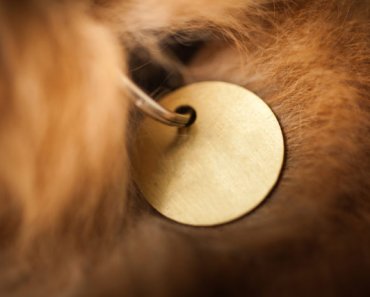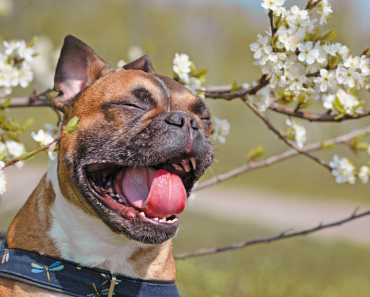Some cats seem especially prone to getting stressed, and it can be challenging to find the cause.
Cats get stressed much as we do. Indoor-only kitties, and those living in multi-cat households, are especially prone to stress, which can lead to problematic behaviors and even health issues. This article takes a look at what can cause your cat to get stressed out, how it can affect her behavior and health, and six ways to help ease her emotions.
Behavioral and physical changes that can arise from stress
Several common signs of feline stress warrant your attention. Hiding, clinginess, withdrawal, aggression, changes in vocalization, inappropriate urination or defecation (failure to consistently use the litter box), startling, over-grooming, foot chewing, and displacement activity (“OCD”) can all be associated with stress in cats.
“Some of the common physical symptoms to look for are frequent, scanty or bloody urination, vomiting, diarrhea, anorexia (inappetence) and unintentional weight gain or loss,” adds retired veterinarian Dr. Jean Hofve. “Since stress is one of the leading causes of immune dysfunction, cats may become seriously ill.”
A vet visit is the first step
Although stress on its own can cause problematic behaviors and other symptoms in cats, underlying medical conditions can do the same. For example, blood in the urine can be a sign of bladder or kidney problems. Dr. Hofve recommends having your cat examined by your vet before assuming that stress is driving her behavior changes. Once the vet determines that your cat’s unusual behavior is stress-related, the next step is figuring out what’s causing her angst.
What can cause a cat to become stressed?
Boredom: Being bored can cause a cat to feel stressed. “The cat’s body is magnificently designed for hunting and killing prey,” explains Dr. Hofve. “Indoor-outdoor cats or feral cats may make dozens of attempts a day to accomplish a kill, although only about one-third of hunts are successful. Hunting prey takes time, energy, movement, intelligence, and focus. These ‘natural cats’, however, are a long way from indoor-only couch kitties. Most household cats are abruptly weaned, spayed or neutered at a very young age, and fed a diet of processed food, with few or no opportunities to hunt. Without sufficient mental and physical stimulation, these indoor-only cats become bored.”
Changes in routine: According to Dr. Hofve, indoor kitties thrive on structure and regular schedules. “Even the slightest change in her daily routine or environment can cause your cat stress,” she says.
Inter-cat conflicts: While many cats peacefully share their homes with other kitties, territorial issues often arise in multi-cat families. “In multi-cat homes, territorial infringement and conflicts are stressful to individual cats,” Dr. Hovfe adds.
Additional triggers: A variety of other things can also cause stress in cats, including visitors, construction or renovations, parties, car rides, and more.
How to alleviate your cat’s stress
“There are six basic things you can do to help prevent or alleviate feline stress,” advises Dr. Hofve.
1. Stick to a schedule
“Cats thrive on regular schedules,” says Dr. Hofve. “They hate surprises.” Feeding your cat on a regular schedule is important. Although some cats are fine with two feedings a day, others fare better with three or four.
2. Implement play therapy
Although all play can help a stressed cat, the difference between casual play and “play therapy” is that the latter is scheduled, interactive play. A feather toy on a wand gives your kitty an excellent opportunity to hunt. You control the “prey’s” movements; the feather can be skittered along the floor or behind a chair, or made to jump and fly. Put this special toy away at all other times. Schedule your cat’s play sessions at the same time, once or twice a day. Feed a high protein snack (meat or freeze-dried chicken or liver) at the end of a “successful” hunt.
3. Factor in variety
Provide a variety of toys for your cat, apart from the wand you use during play therapy sessions. Laser toys may be irresistible, but since there’s nothing tangible to catch, simultaneously add a substantial toy that paws can grasp. Some cats enjoy playing early in the morning, while others prefer playing right before bedtime. If your cat tends to wake you in the middle of the night, a pre-bedtime play therapy session plus a snack is just what the doctor ordered!
The difference between casual play and “play therapy” is that the latter is scheduled, interactive play.
4. Give her a “scaled-down” hunting experience
To mimic hunting, place treats strategically around the house for your cat to find. Another alternative is a “puzzle” food dispenser that makes you kitty work for his food. This is especially a good idea for overweight, inactive, or elderly cats.
5. Turn on “Kitty TV”
Most cats love gazing out the window to watch birds, squirrels, and other wildlife. A cat tree placed near the window with a birdfeeder hanging outside are certain to pique your kitty’s interest.
6. Manage her stress with alternative therapies
Flower essences, Reiki, massage, acupressure, Tellington TTouch and similar physical and energetic healing modalities can be helpful for stress reduction. Cats are natural meditators and spend many hours in a calm but alert state. Using these stress-reduction techniques can help your cat spend more and better quality time meditating.
If your cat is suffering from stress, you need to determine its cause and either minimize or eliminate the triggers. Combining this approach with the six tips above will soon have her feeling better and calmer, and more like her old self.




























